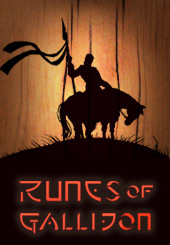Government
The High Hills are the domains of House Corvus and House Lucan. Corvus is the master of Animal Mastery: recognition of, communication with, and influence over birds and beasts. Lucan is the master of Shape-Changing: the transformation of self into other living forms. There are no known schools that instruct nobles in the arts of animal mastery and shape-changing.
Neither of these Noble Houses have been dedicated to the rule of their realms. Although it is common knowledge that the rulers, sons, and daughters of both Houses inhabit the hills, they are seldom seen and rarely interact with common people except in emergencies.
The High Hills are governed instead by four House Administrators. Each controls a large area since the people are spread far and wide throughout the hills. These four Administrators work together, remaining in contact year round. They are dedicated to the welfare of their people.
Terrain
Thick forests, high cliffs, deep river valleys, waterfalls, and mountain lakes dominate the landscape. Summers are warm, winters cold with snow and ice. Lakes and streams freeze over, but rivers continue to flow. Game is plentiful. Thunderstorms in the spring and fall are a danger to those in high places; lightning kills the unwary.
Culture
The men and women of the High Hills are a hardy, frontier folk. Warm and welcoming to friends; cautious, but not hostile to strangers. Polite behavior is prized, as is stoic endurance of hardship.
The people are largely organized around steadings: six to ten families living in a small unfortified village, sharing communal farmland, storage cellars, smithy, and great hall. These folk are hunters, trappers, loggers, and farmers on a small scale, growing little more than a single steading can eat in a year. Clear water is the common drink, but all steadings brew beer, the type varying with the time of year.
It is the custom among these folk that guests should be welcomed and fed without any discussion of money. A guest is expected to contribute to the steading or provide their host with some small gift — one of lesser value than anything offered by the host.
Like most of the Northern Kingdoms, horses are rare in the High Hills, a sure sign of wealth or status. Canoes, rafts, dogcarts and feet are the common forms of travel.
The people of the High Hills gather into the towns and forts for market days, fairs, and holidays; including Imperial Festivals, Noble House Festivals, and seasonal celebrations.
Commerce
Barter is more prevalent than exchanges involving coins. Fine furs, cured meats and lumber-based goods are the principle exports. Refined goods are imported in small quantities.
Warfare
In war, the people of the High Hills wear leather armors; soft, hardened, studded, and woven. The bow, long knife and war hatchet are the most common weapons — both knives and hatchets can be thrown with accuracy. Boar spears and maces as weapons are not uncommon among men. Short swords of various types are commonly found amongst the leaders and rangers, along with an occasional great sword. Women of the High Hills are famed as archers, using compound long bows of wood, leather and horn.
A series of forts, constructed of stone and wood, serve as gathering points in times of trouble. Each fort is stocked with provisions to last a season. A levy of six adults is laid on each steading for two months of service per year. This levy of men and women serves in the forts, work as rangers (police) patrolling the trails and training in the art of combat.
Notes
(Original source material here.)
- Login to post comments



